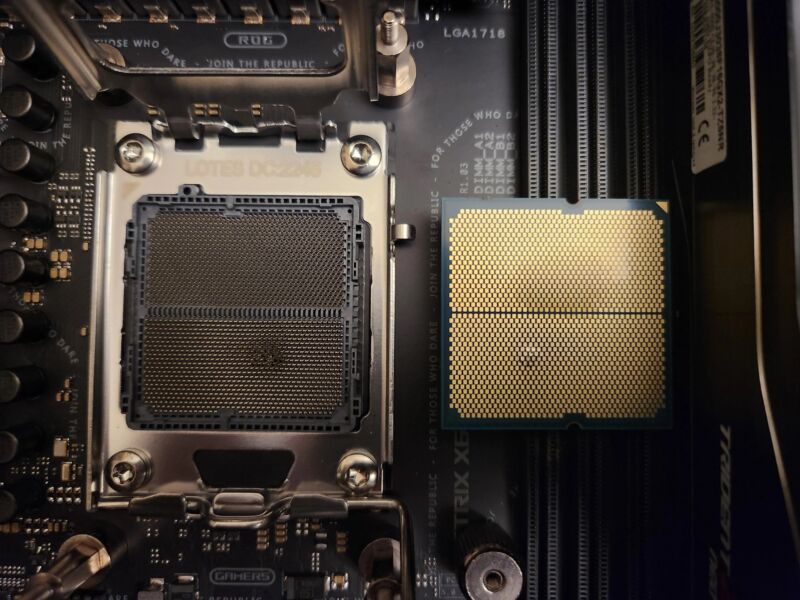Some Ryzen 7000X3D processors are burning out; high voltages may be to blame

Enlarge / One user's broken 7800X3D processor; the bulging spot on the bottom of the CPU also bent the pins in the motherboard socket. (credit: Speedrookie/Reddit)
Over the weekend, users on Reddit and YouTube began posting about problems with AMD's newest Ryzen 7000X3D processors. In some cases, the systems simply stopped booting. But in at least one instance, a Ryzen 7800X3D became physically deformed, bulging out underneath and bending the pins on the motherboard's processor socket.
In a separate post, motherboard maker MSI indicated that the damage "may have been caused by abnormal voltage issues." Ryzen 7000X3D processors already impose limits on overclocking and power settings, but new BIOS updates from MSI specifically disallow any kind of "overvolting" features that could give the CPUs more power than they were built to handle. You can still undervolt your CPU to attempt to reduce temperatures and energy usage by giving the CPU a bit less power than it was designed for.
The Ryzen 7000X3D processors are set to a lower voltage than regular Ryzen 7000 CPUs by default because the extra L3 cache layered on top of the processor die can raise temperatures and make the CPU more difficult to cool. This has also made the chips much more power-efficient than the standard Ryzen chips, but that efficiency comes at the cost of overclocking settings and other features that some enthusiasts use to squeeze more performance out of their PCs.
Read 3 remaining paragraphs | Comments
from Tech – Ars Technica https://ift.tt/xUsfBad
Comments
Post a Comment